Sweet potato sesame soup, a slimming soup that warms the stomach in autumn
Recommended this week: Sweet potato sesame soup low-calorie food exchange area>>
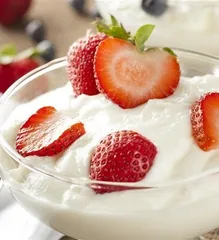
sweet potato (1 piece) 100g calories: 99 calories

Onion (1/4) 100g Calories: 39 calories

Milk (100ml) 100g Calories: 54 calories
Excipients:

Butter (half a spoon) 10g Calories: 88 calories

Water (400ml) Calories: 0 calories
Seasonings:

A little pepper

Total calories: 135 calories/person-More calories query Your body needs calories
Sweet potato sesame soup-the principle of slimming
Principle of slimming: Eating sweet potatoes will not only not gain weight, but can lose weight, build body, prevent sub-health, and relieve constipation and detoxification. Every 100 grams of fresh sweet potatoes contain only 0.2 grams of fat, which produces 99 kilocalories of heat, which is about 1/3 of rice. It is a good low-fat and low-calorie food. At the same time, it can effectively prevent sugar from turning into fat, which is conducive to weight loss and body building. Sweet potatoes contain a large amount of dietary fiber, which cannot be digested and absorbed in the intestine. They can stimulate the intestine, enhance peristalsis, relieve constipation and detoxify.
Black sesame contains about 60% fatty oil. The main components in the oil are glycerides such as oleic acid, linoleic acid, palmitic acid, and stearic acid. Each 100 grams of black sesame contains 21.9 grams of protein, 61.7 grams of fat, 564 mg of calcium, 368 mg of phosphorus, 50 mg of iron. It also contains sesamin, arachidic acid, sesanol, oleic acid, palmitic acid, stearic acid, sterols, lecithin, vitamins A, B, D, E and other nutrients. Eating sesame seeds often can keep your skin soft, delicate and smooth. In people with habitual constipation, toxins remaining in the intestines can damage the liver and cause rough skin. Sesame can smooth the intestines to treat constipation and moisturize the skin. People who use dieting to lose weight will have dry and rough skin due to insufficient nutrient intake. Sesame seeds contain violins, choline, and sarcosamine, which prevent the body from getting fat, so eating too much sesame seeds will not get fat. While diet and weight loss, if combined with sesame consumption, rough skin can be improved.
Onions are nutritious and have a spicy smell. It stimulates secretion in the stomach, intestines and digestive glands, enhances appetite and promotes digestion. Onions do not contain fat, and their essential oils contain a mixture of sulfur-containing compounds that can lower cholesterol. It contains sugar, protein, various inorganic salts, vitamins and other nutrients that play a certain role in the body's metabolism, better regulate nerves and increase memory. Its volatile components also have strong functions such as stimulating appetite, helping digestion, and promoting absorption.
Sweet potato sesame soup-making steps
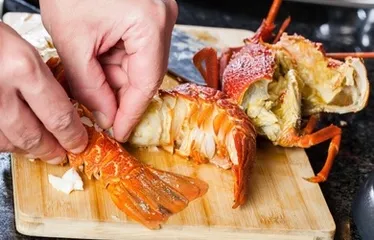
1 Peel and cut into strips
First peel the sweet potatoes and cut them into 3 cm long strips and wash them.

2 Making onions
Peel off the onion and cut it into thin skins.

3 Start cooking
Then add the butter to the pan until it melts.

4 Add onions
Add onions and stir-fry over medium heat to soft, then add sweet potatoes and stir-fry until half-cooked.
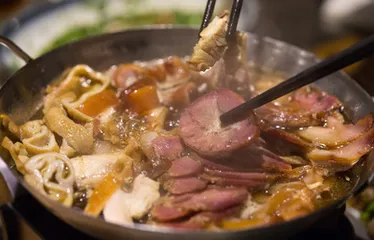
5 Cooking soup
Pour the stir-fried sweet potatoes and onions into water and cook over weak medium heat.
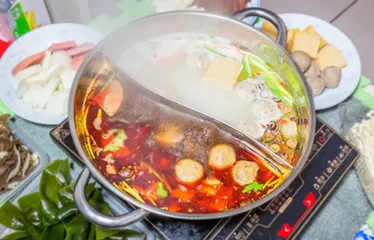
6 Add milk, etc.
After the sweet potatoes are soft, add milk, salt and pepper, and add the amount according to your preference.
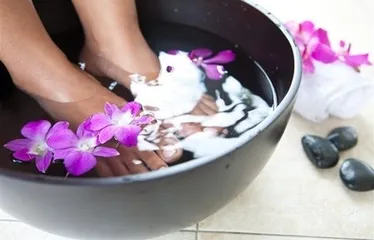
7 Sprinkle with black sesame seeds
Finally, pour it into a vessel, sprinkle with black sesame seeds, and you're done.
Share it on my Weibo
This issue of nutrition consultant
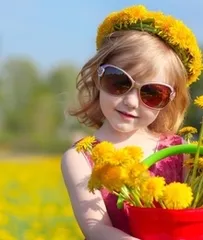
Special guest Sylvia Wang, Master of Food and Human Nutrition, University of Florida, has 63.8 calories, accounting for 3% of daily calories. The daily calorie intake is calculated based on the daily intake of 2000 calories, and the daily intake per person varies according to their body size and activity status.
Can this sweet potato sesame soup reduce fat for obese people?
Sylvia Wang: Because sweet potatoes are rich in fiber and the soup contains sufficient water, eating this soup before meals can occupy the space of the stomach and provide a good feeling of satiety. Onions are low-calorie ingredients. According to the World Health Organization, onions can prevent atherosclerosis, so friends who want to lose weight can boldly eat them. When making this soup, use less salt to control sodium intake. It should be noted that this soup contains saturated fat, mainly from butter. Friends who are worried about this and can give up the butter flavor can use olive oil or other liquid oil instead.>>> See more ways to lose weight